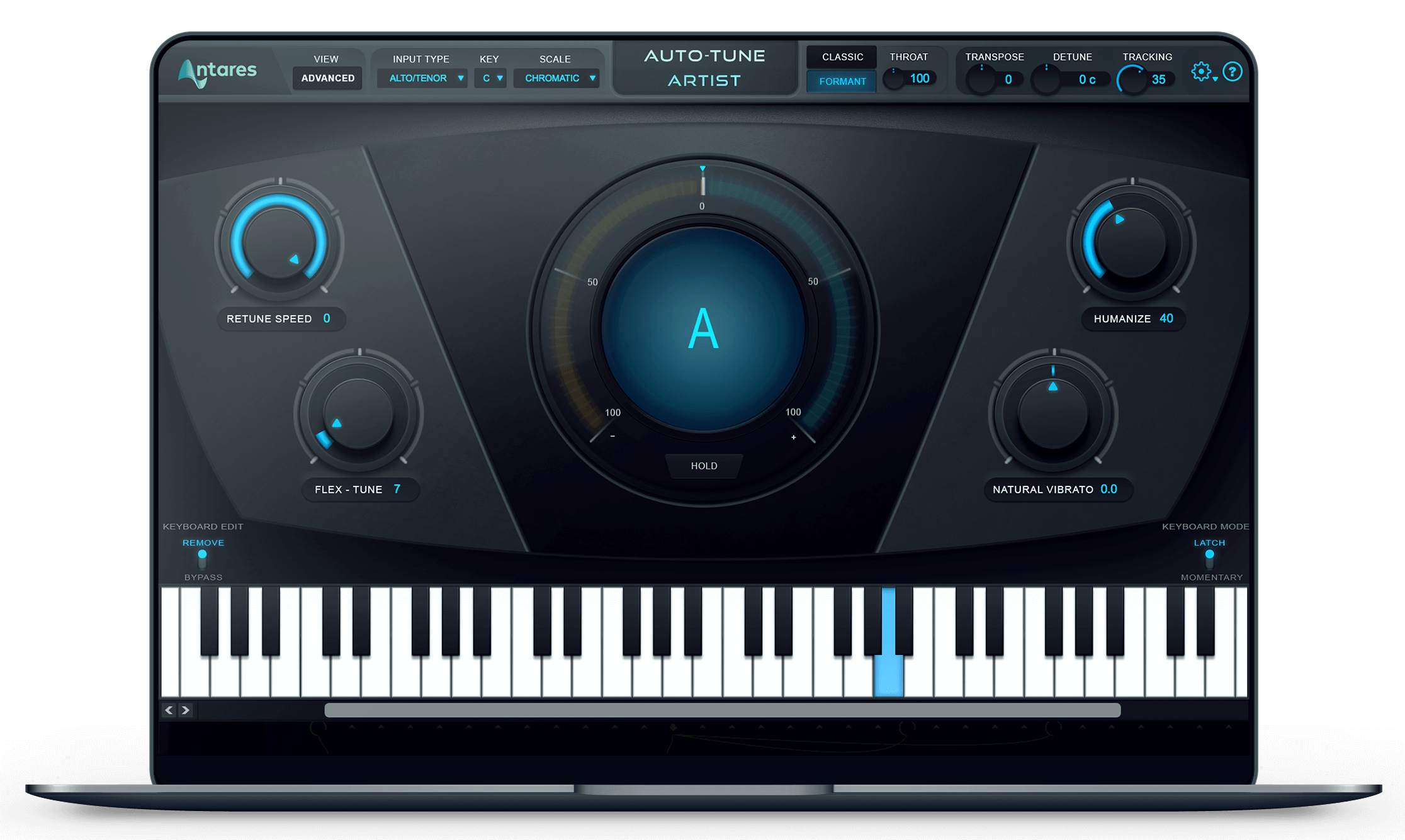A Review of Autotune
By: Ryan Oskey
Ryan Oskey is the owner of https://vocalpresets.com. Ryan has been producing and engineering music professionally for 15 years landing major commercial placements with companies like Fox, NBC and CBS.
Antares Autotune Artist
If you love to make music chances are you’ve heard people use the term “Autotune”. You may have even heard that all pop music uses Autotune. It’s typically associated with “perfect” vocals, angel-esque in some cases.
But what is Autotune and how do we use it?
Autotune is the flagship pitch correction plugin created by the plugin developer Antares. Antares develops a suite of vocal plugins and Autotune is by far their most popular. Autotune basically takes your voice and tunes it in real time. For example, if you are singing a song and you set Autotune to the key of A Minor, Autotune will make your vocals only hit the notes in A Minor. Autotune has a few knobs that allow you to tailor the amount of pitch correction you apply to your voice. This is super helpful because if you put the settings on 100%, your vocals will sound robotic. Easing the settings back enables you to achieve more nuanced tuning. Artists like Travis Scott use Autotune with the retune speed on 100%. This basically means that there is no flexibility in the vocal tuning. The plugin will ensure that your vocal stays in the key of A Minor (or whatever key you set the plugin to) 100% of the time, no compromises.
On the other hand artists like Justin Bieber and Adam Levine also use Autotune. These are more natural singers who like to use the plugin more as a guide than as an effect. They set the retune speeds slower, around 70%. This enables their voice to go off pitch a little so that it sounds less robotic and more natural. Doing this enables their voice to sound angelic. When applied on a slower retune speed setting, the plugin is just guiding your vocal into pitch as opposed to forcing it into pitch.
Since Autotune has become ubiquitous, other companies have created their own versions of Autotune. Izotope has a version called Nectar 3. This version is $10 a month through Splice’s rent to own program. Waves also makes a version of Autotune, it’s called Waves Tune Real-Time. This is my favorite alternative to Autotune and sometimes goes on sale for $35. Melda Productions makes a free version of Autotune called MautoPitch. You can get this as a free download from their site. MautoPitch is great for free software but honestly doesn’t compete with the paid plugins. MautoPitch sounds grainy at times and can be glitchy.
If you’re interested in buying Autotune from Antares there are multiple versions designed to hit every price point. There is Autotune Access, Artist, Pro and EFX. The different variations range from $100-$400. If you want to pay monthly, Autotune also offers Autotune Unlimited. It’s a $50 a month subscription service.
Out of all the different variations of Autotune, and the different company offerings, my personal favorite is Autotune Pro. Autotune Pro is the most expensive, but also the cleanest and best sounding. The algorithm on Autotune Pro is more refined and responsive than the other versions. This is the one that Travis Scott and Justin Bieber are using. If you are on more of a budget check out Waves Tune Real-Time. This is my second favorite and one of the cheapest alternatives to Autotune Pro.

